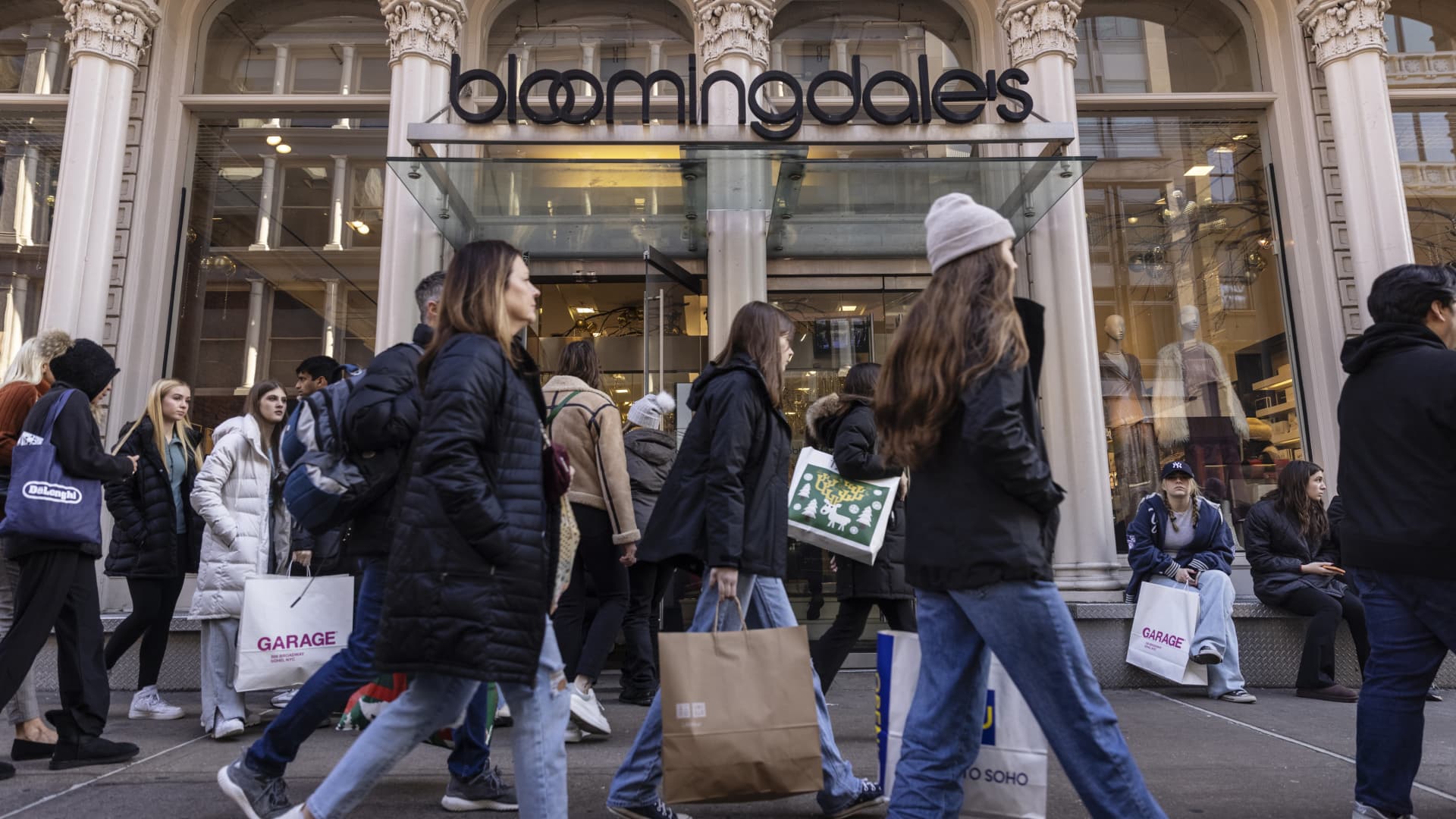Products You May Like
After benefitting from a pandemic-era shopping spree, retailers are preparing for a reality check.
Walmart and Home Depot will kick off retail earnings season Tuesday by sharing holiday-quarter results. Other big-name retailers will follow, including big-box players like Target and Best Buy, and mall staples like Macy’s and Gap.
The companies’ reports will come as recession fears cloud the year ahead. Americans are more worried about inflation now than they are about Covid. People are choosing to spend more on dining out, traveling and other services while cutting back on goods. Higher interest rates threaten the housing market.
A slowdown in sales growth also seems likely after the sharp increases of the past three years.
For investors, the end of retail’s sugar high brings a mixed picture. Companies may share modest sales outlooks. Yet healthier profit margins could be a silver lining, as freight costs fall and retailers have less excess merchandise to mark down. Plus, companies may have more cautious spending plans, such as smaller inventory orders and a slowdown in hiring. That could boost profit margins, even if consumers don’t spend as freely.
“The world is focused on top-line momentum,” said David Silverman, a retail analyst at Fitch Ratings. “So many market participants are focused on what revenue is what revenue is what revenue is.”
But, he added, “it’s the operating profit that could bounce back nicely from a difficult 2022.”
Silverman said retailers’ strategies have flipped from a year ago. Then, they bet on sky-high sales becoming the new normal and made riskier bets, from placing bigger orders to paying extra to expedite shipments. That hurt companies’ margins, as unsold merchandise wound up on the clearance rack and costs crept up, along with sales.
A dose of reality over the holidays
Already, retailers have gotten a dose of reality. Walmart, Target and Macy’s are among the companies that have spoken about a more careful consumer.
Several retailers already previewed holiday results. Macy’s warned that holiday-quarter sales would come in on the lighter side of its expectations. Nordstrom said weaker sales and more markdowns hurt its November and December results. Lululemon said its profit margins would be lower than anticipated, as the athletic apparel retailer juggles excess inventory.
Industry-wide holiday results fell below expectations, too, according to the National Retail Federation. Sales in November and December grew 5.3% year over year to $936.3 billion, below the major trade group’s prediction for growth of between 6% and 8% over the year prior. In early November, NRF had projected spending of between $942.6 billion and $960.4 billion.
Retail leaders have looked closely for clues, as they gear up for the coming fiscal year. (Most retailers’ fiscal years end in January.)
Macy’s CEO Jeff Gennette told CNBC last month that the department store operator noticed fewer holiday shoppers buying items for themselves while shopping for gifts. He said those lower purchases “more than offset the good news that we were getting on gifting and occasion.”
The company’s credit card data flashed warning signs, too, he added: Customers’ balances on Macy’s, Bloomingdale’s and co-branded American Express credit cards are rising and more of those balances are getting carried to the next month rather than paid off.
“When we look at our credit portfolio, you’ve got a customer that’s coming under more pressure,” he said.
Tough calls, cautious outlooks
Some retailers have already made some difficult moves to prepare for what could be a tough year. Luxury retailer Neiman Marcus and Saks.com, the e-commerce retailer spun off from Saks Fifth Avenue stores, have both had recent layoffs. Stitch Fix laid off 20% of its corporate workforce. Wayfair laid off 10% of its global workforce. Amazon began cutting over 18,000 employees, including many in its retail division.
Bed Bath & Beyond, which has warned of a potential bankruptcy filing, recently cut its workforce deeper as it also shutters about 150 of its namesake stores.
Target in November said it would cut up to $3 billion in total costs over the next three years, as it warned of a slower holiday season. It did not provide specifics on that plan. The company will report its fourth-quarter results on Feb. 28.
Many retail leaders said they anticipate cost-cutting measures for their workforces in the next 12 months, too, such as hiring temporary workers rather than full-time employees, according to a survey of 300 retail executives in December by consulting firm AlixPartners. Thirty-seven percent said they expect slowing raises or promotions and 28% said they expect cutting benefits at their companies in the coming year.
Of those surveyed, 19% said layoffs had happened at their companies in the last 12 months and 19% said they expect layoffs to happen in the next 12 months.
Marie Driscoll, an analyst covering beauty, luxury and fashion for retail advisory firm Coresight Research, said she expects companies to give other line items a closer look, such as free shipping and returns, as well as digital marketing expenses.
As interest rates rise, she said retailers may “find operating religion.”
“Retailers are looking at their businesses and saying not every sale is worth having,” she said. “The fact that there is a real cost of money is changing the way that companies are looking at their business.”
Yet some factors still work in retailers’ favor, she said. The tight labor market could give consumers the confidence to spend, even as inflation remains hot. People are dressing up and buying fragrances as they go out again, a factor that may have lifted January retail sales along with more spending at bars and restaurants.
She said the earnings season will bring surprises and show which companies can navigate choppier waters. Nike, for instance, raised its outlook after topping Wall Street’s expectations in December.
“A lot of it is dependent on their consumer and the strength of their brand,” Driscoll said. “There’s strength out there.”
